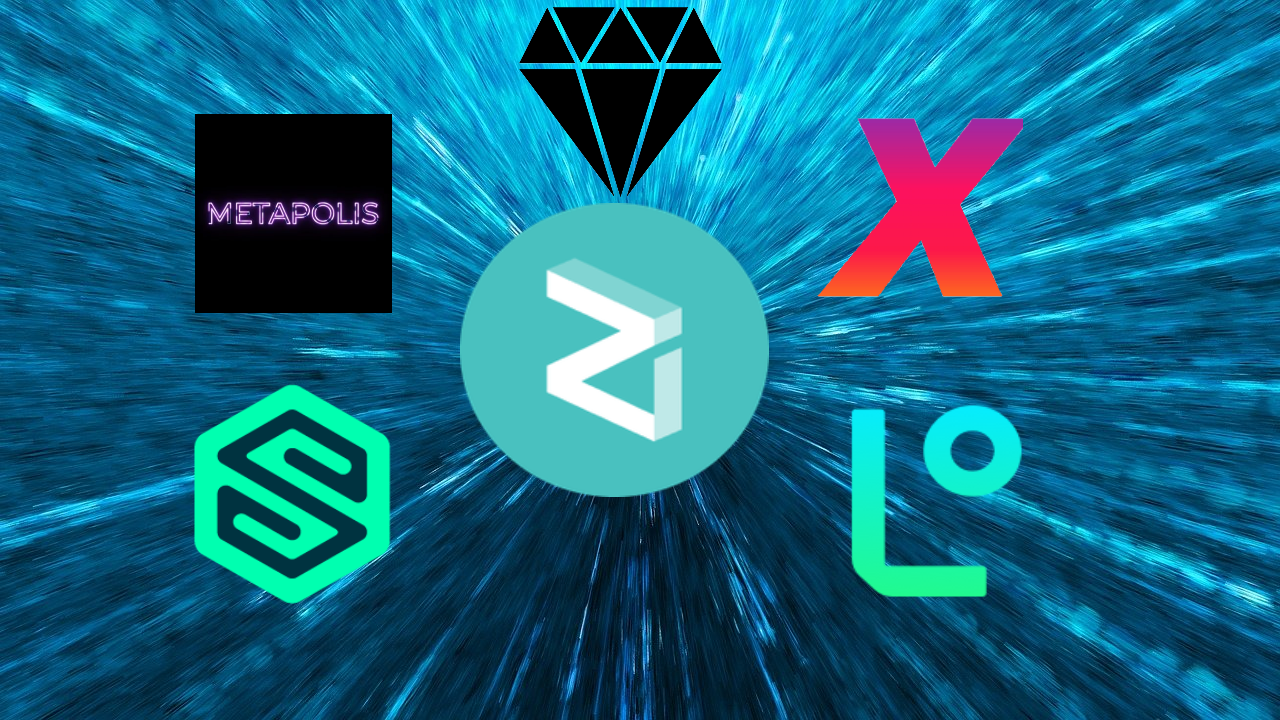Ethereum Scam Project Desperately Claims Ties to Acclaimed Computer Scientist Nick Szabo

There are few people in the crypto industry with the influence and knowledge that Nick Szabo possesses. As such, there are numerous nefarious individuals who seek to profit off of Szabo's genius and his propensity for long breaks off the internet. Since Ethereum is an open platform where anyone can code a smart contract, rug pulls will unfortunately happen.
One such unknown individual recently launched an Ethereum token scam which uses deepfakes to claim Szabo is backing the project, among other methods of trickery.
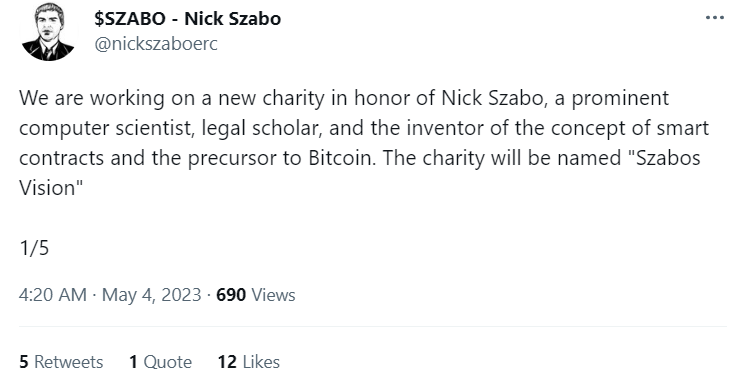
The token in question has the ticker symbol $Szabo, an ERC-20 token with the fabricated purpose of raising money through a charity for Nick Szabo. This is false, since Nick Szabo no longer endorses Ethereum, and is far too intelligent to be a part of this pathetic scam.
It is unclear whether Mr. Szabo is aware of the scam, since he has been on a hiatus from major Internet platforms and the scam is on a fairly small scale. By portraying that Nick Szabo is endorsing the token, some people will no doubt take notice or worse, buy the token on some shady exchange, which is the scammer's ultimate goal.
This article will shine light on this scam and will serve as an example of how to do your own research regarding investments that are too good to be true.
Social media to advance the scam
The scammer running this operation appears to be no different than others. Evidently, he/she correctly realized that people in this era are heavily influenced by social media, sometimes even taking the words of random individuals as gospel.
Three methods of outreach were chosen for this scam, and the first is a website displaying social media links with an old quote from Szabo endorsing Ethereum.
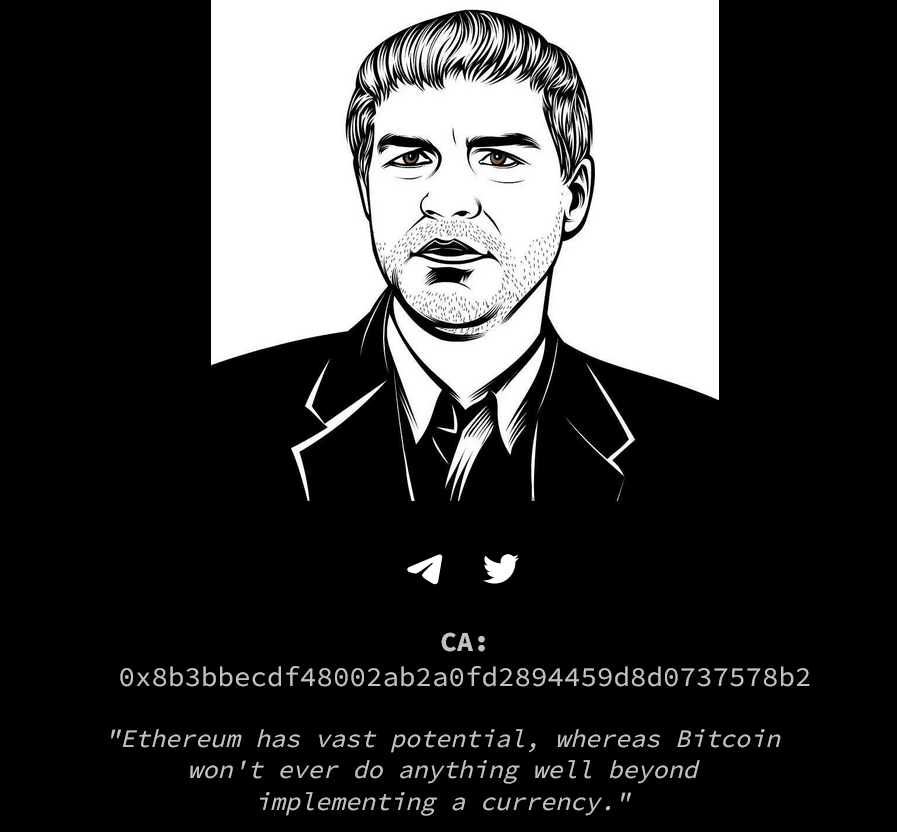
It is likely that the website will be deleted once more people catch on. This square is the only information provided on the entire website; not a sign you want to see when you're putting hard-earned money into an investment.
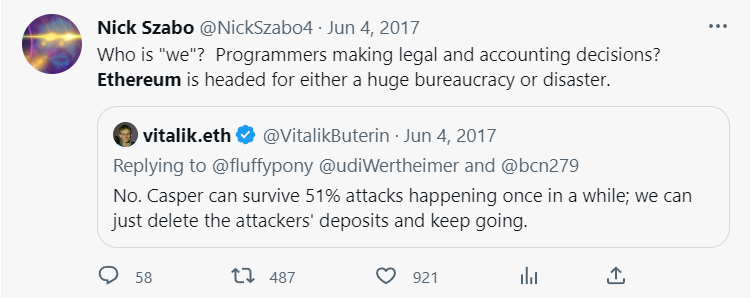
As you can see, Nick Szabo drastically changed his stance on Ethereum by 2017, showing the untruthful nature of the above website. This is just one of many lies that the scammer uses to manipulate people.
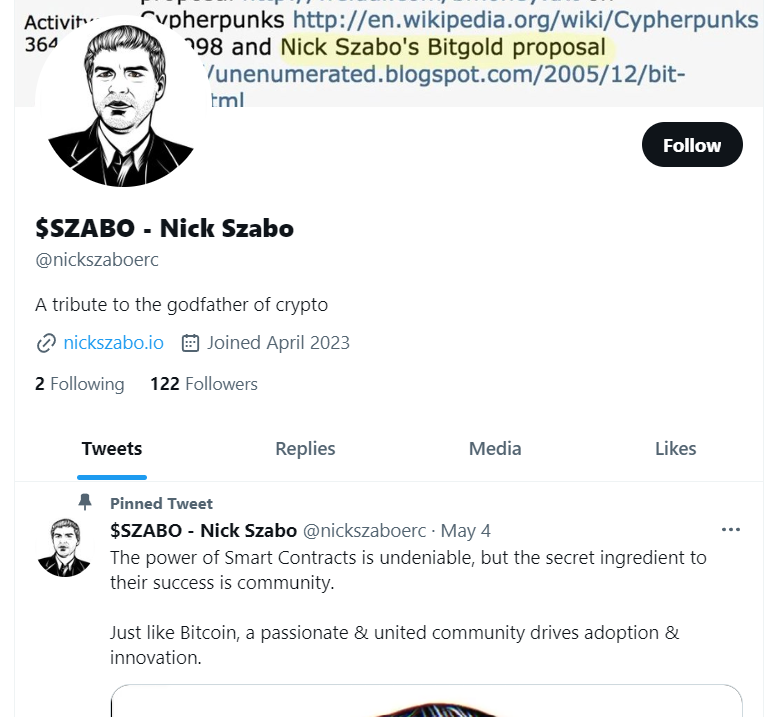
Next, there is a Twitter account for the scam. This is where the scam flourishes through fake engagement provided by deepfakes of Szabo's voice (such as the pinned tweet) and malicious bots. Whoever is behind the scam thought it would be logical to invite people to create memes about the project to increase engagement, as previously described. This is, of course, likely a front to keep the scam going.
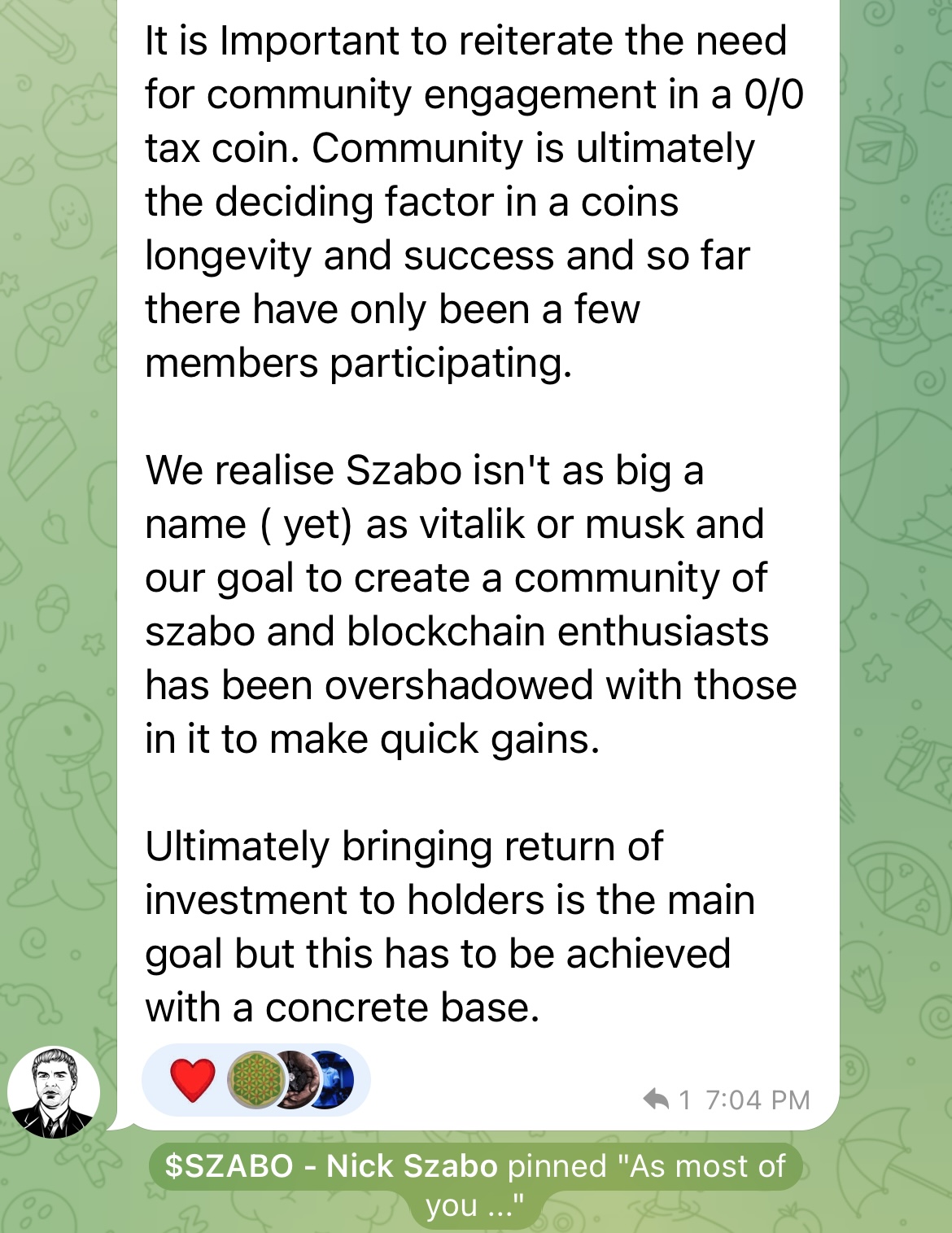
The Telegram channel is where the real action happens. As shown above, the scammer attempts to convince people to spread the word so that they can get a return on their investment. Of course, this would function like a Ponzi scheme, since early investors would receive potential returns on their money, while newer ones would get burned.
And, crucially, this scam obviously isn't functioning as a charity if all the money goes to the scammer and early investors. In addition, he/she has no qualms about pathetically stating that they're trying to use Szabo's influence to build the scam.
Conclusion
This article serves as a guide into how to avoid rug pulls. The Szabo token is a prime example of scams that can be coded in a few hours by any decent developer. Smart contracts bring many great opportunities to the world thanks to Nick Szabo, but they can also be used for harm, unfortunately. That is why it is important to use common sense, and if you have programming knowledge, evaluate the contract's code for nefarious motives.
Nick Szabo is one of the greatest computer scientists in the world, and it is vital to report on scams surrounding his good name so that people don't mistake himself for vile scammers. The token scam described in this article won't fool experienced individuals, however, many new investors could get caught up. It is important to share the word about scams like this to protect others.

